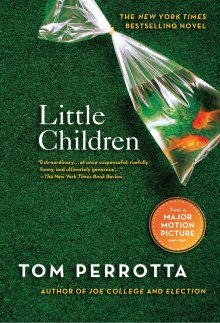
Buddy Boy, Mark Hanlon’s debut, is a haunting and potent film about dead end lives that provokes more questions than answers but remains bizarrely interesting throughout.
The film provides a look into the surrealistic existence of emotionally stunted, stuttering misfit Francis (Aidan Gillen), who lives with his trollish invalid stepmother (actual amputee Susan Tyrrell), in a squalid apartment.
Suffering from overwhelming guilt concerning his sexuality, his religion, and himself, he goes to confession monthly, admitting every impure thought and indiscretion. The contrast between faith and the id is revealed in the opening, which presents the viewer with a montage of religious imagery followed by Francis, uh… pleasuring himself to a pair of voluptuous breasts in a magazine.
Like Kevin Spacey in American Beauty, this is the high point of his day, which soon descends into woeful monotony. He finds a new pasttime in spying on his attractive neighbor Gloria (Emmanuelle Seigner, controversial Polish director Roman Polanski’s wife) through a hole in his apartment.
Then they meet. Gloria is strangely attracted to Francis, which would be unfeasible if she weren’t clearly lonely and desperate too. She tells him she is a vegan, a word he doesn’t understand, but he catches on. According to her, she doesn’t care what he eats, but then she buys him a “Meat Is Murder” t-shirt, which is a mixed message if I ever saw one. This further accentuates the character’s conflicting beliefs and desires.
Gloria is pretty and nice, too nice, and Francis begins believing irrational things about her pastimes, focusing on her eating habits. Meanwhile he becomes increasingly psychotic (?) and has a falling out with God. Is Francis going insane? Or is meat back on the menu? Buddy Boy is an enigma — although declared a religious allegory by IMDB users it at times seems to be making a statement against Christianity.
In fact Francis spends so much time obsessing about his masturbating, sinning ways that the viewer wishes the poor guy would just snap out of it. The movie is a triumph of atmosphere — the bleakness and decay of Francis and Sal’s apartment is palpable, while Gloria’s big-windowed, pleasingly green abode seems to spell change for the troubled young man.
The problem, it seems, is the vast contrast in acting styles between Aidan Gillen (Francis) and Susan Tyrrell (his stepmom, Sal). Gillen, from the GLBTQ show Queer as Folk (which I haven’t seen), plays his character sensitively and gently, as a fundamentally benevolent albeit strange outcast damaged by trauma and psychosis. Susan Tyrrell plays his abusive stepmom more like a SNL skit. Maybe her broad performance is the fault of the material.
When an actress’ character is scripted to beat a plumber over the head with her artificial leg (one of the stranger scenes in this story), maybe there isn’t much room for subtlety. Buddy Boy, nevertheless, is an intriguing first feature and a fascinating story.
It walks a fine line between being campy and profound, which isn’t necessarily a bad thing. I like the humanization of Francis, a character who might be written off as a scummy voyeur, or worse, as white trash. It raises interesting questions, contains twists, and transports you, which is something films should accomplish, but rarely do.










